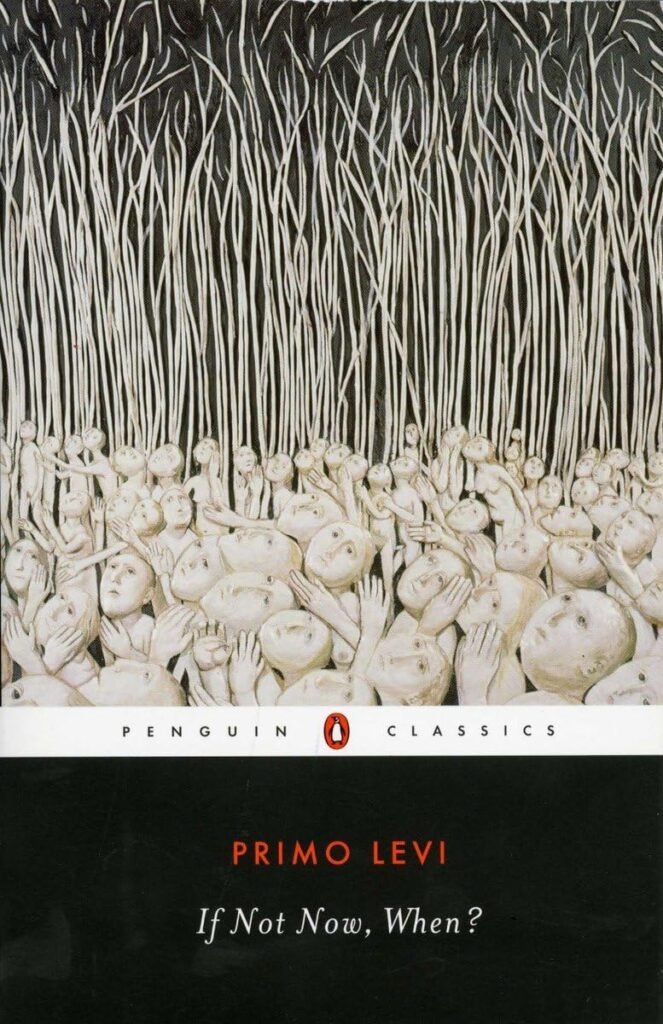The Power of a Quote: From Souvenir Pencils to Primo Levi’s Profound Novel
In a world where words can inspire action and reflection, a simple quote on a pencil can lead to profound discoveries. The phrase “If not me, who? And if not now, when?” attributed to Mikhail Gorbachev, encapsulates a powerful call to personal responsibility and urgency. This slogan, often seen on everyday items like pencils, resonates deeply with many, prompting introspection and a sense of duty.
Discovering Primo Levi’s “If Not Now, When?”
This very quote led to the discovery of Primo Levi’s novel, “If Not Now, When?”. The title of Levi’s book is derived from a famous saying by Hillel the Elder: *”If I am not for myself, who will be for me? And when I am for myself, what am ‘I’? And if not now, when?”* This ancient wisdom emphasizes the importance of self-reliance, ethical behavior, and timely action.

If not now, when? https://a.co/d/8As5nPv
This post may contain affiliate links. If you make a purchase through these links, I may earn a commission at no extra cost to you. Your support helps keep this site running, so thank you
The Meaning Behind the Title
Levi’s choice of title reflects the urgency and moral imperative faced by the Jewish partisans during World War II. The novel follows a group of Jewish resistance fighters who, despite overwhelming odds, engage in acts of sabotage against the Nazis. Their struggle is not just for survival but for dignity and justice. The title serves as a reminder that action must be taken in the present moment, especially in the face of injustice and oppression.
Key Messages and Moral Dilemmas
Resilience and Survival: The novel highlights the incredible resilience of the Jewish partisans. Their journey is a testament to the human spirit’s capacity to endure and resist oppression.
Identity and Belonging: The characters grapple with their identities as Jews in a hostile world. Their sense of belonging shifts from their destroyed homes to the camaraderie and shared purpose within their partisan group.
Heroism and Sacrifice: The story explores the nature of heroism, not as grandiose acts but as the daily struggle to survive and resist. The partisans’ actions, though often small and desperate, are heroic in their persistence and courage.
Means vs. Ends: The partisans often face the moral dilemma of whether the ends justify the means. Their acts of sabotage and violence, while aimed at defeating the Nazis, also bring about unintended consequences and moral ambiguity.
Loyalty and Betrayal: The novel examines the complexities of loyalty, both to their cause and to each other. Trust is a precious commodity in their world, and betrayal can have devastating consequences.
Humanity in War: Levi’s characters constantly struggle to maintain their humanity amidst the brutality of war. They are forced to make difficult choices that challenge their moral and ethical beliefs.
The Importance of Remembering
In today’s world, stories like Levi’s are more important than ever. They serve as powerful reminders of the horrors of war and the resilience of the human spirit. By remembering and reflecting on these stories, we can better understand the consequences of conflict and the importance of striving for peace.
A Call to Action
The messages in “If Not Now, When?” are timeless. They remind us that the fight for justice and dignity is ongoing and that each of us has a role to play. In a time when the world faces numerous challenges, from political unrest to social injustice, the call to action embedded in both Gorbachev’s quote and Levi’s novel is clear: If not now, when? If not you, who?
By embracing these messages, we can honor the past, understand the present, and work towards a better future. Let us remember the lessons of history and strive to create a world where such stories of resistance and resilience are no longer necessary.
This article aims to highlight the profound impact of a simple quote and the enduring relevance of Primo Levi’s novel. It underscores the importance of remembering the past to avoid repeating its mistakes and emphasizes the power of individual action in shaping a just and peaceful world.